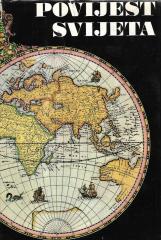
Povijest #14: Industrijalizacija i nacionalne revolucije (1848.-1871.)
The fourteenth volume of the World History edition covers the period from 1848 to 1871, marked by industrialization and national revolutions.
The revolutions of 1848, known as the “Spring of Nations,” shake Europe, demanding democracy, civil rights, and national identity. Although largely unsuccessful, they spur reform and strengthen nationalism.
Industrialization spreads from England to the continent, transforming the economy through railroads, steam engines, and factories. Urbanization and the rise of the working class lead to social tensions, and socialist movements (Marx, Engels) offer a critique of capitalism. Colonialism intensifies, with Britain and France vying for global dominance, while slavery is gradually abolished (USA, 1865).
The unification of Germany (1871) under Bismarck and Italy (1861–1870) are key outcomes of national movements. The American Civil War (1861–1865) resolves the issue of slavery and strengthens federal power. In the Croatian context, the Revolution of 1848–1849, the role of Ban Jelačić, and the fight against Magyarization within the Habsburg Monarchy are emphasized.
One copy is available





